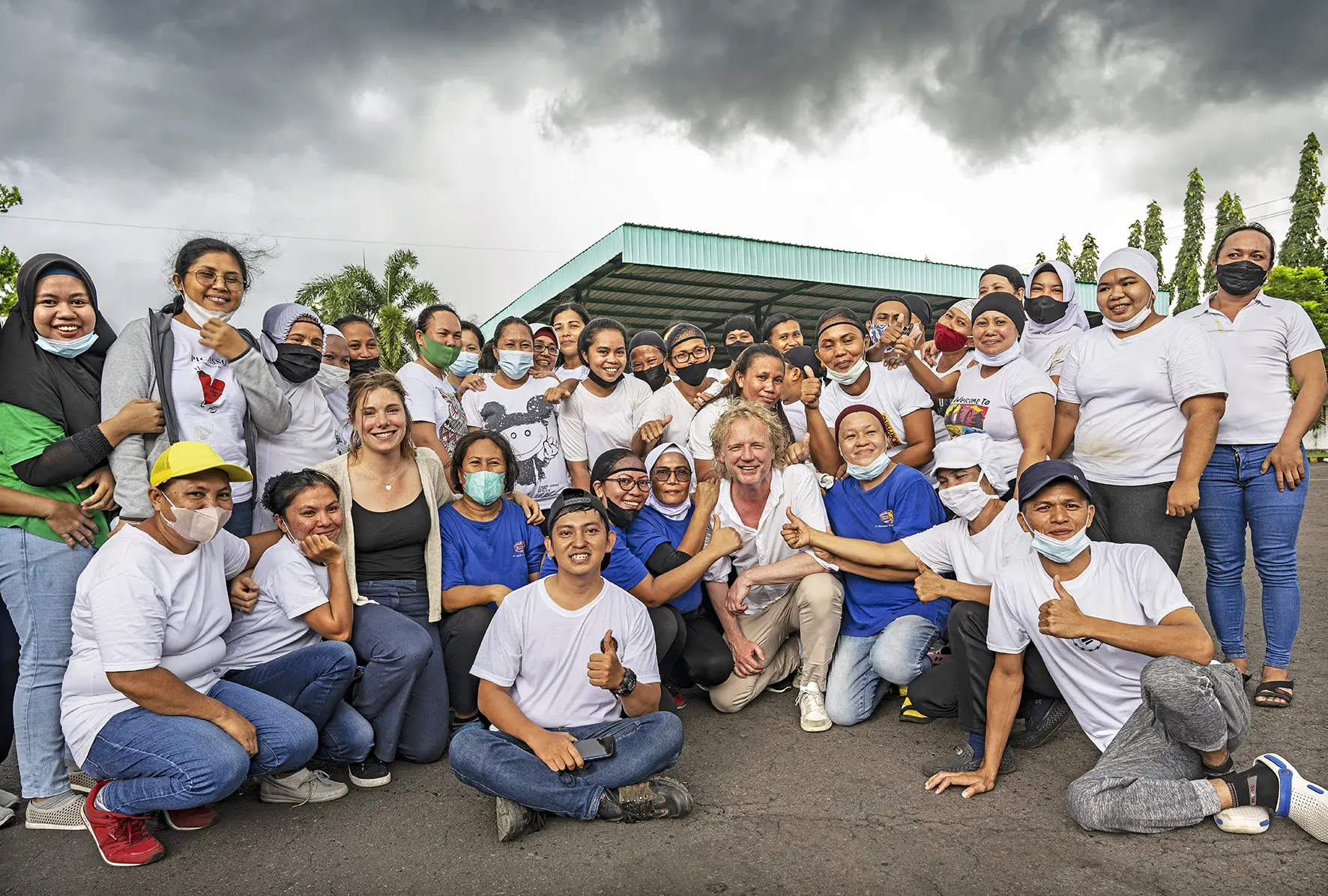What does Fair Trade mean in the tuna factory?

An interview with Meike Stella Batos from Bitung! Fair Trade certification for canned tuna not only protects the rights of fishers at sea but also those of workers in the factories where the tuna is processed. The factory that produces the Fair Trade canned tuna for Sea Tales is located right on the harbor in Bitung, Indonesia. In February 2020, they received their Fair Trade certification. Meike Stella Batos has been working there for over eight years and shares what this certification means to her personally.
Fewer Slips
Meike works in the so-called 'loining area', where the white tuna fillet (loins) is separated from the red meat. On an average day, she processes around 300 kg of tuna, which, together with her colleagues, adds up to over 40 tons per day. The use of sharp knives, hydraulic machines, and conveyor belts makes the work in the factory hall not without danger. Fortunately, Meike has noticed that since the introduction of Fair Trade, awareness of worker safety has increased.
"Wearing gloves is now mandatory for everyone in the filleting department. As a result, the number of cuts has decreased significantly. An added bonus is that my hands don’t age as quickly," says Meike, proudly showing her hands to the camera.
An anti-slip coating has also been applied to the factory floor. “Washing the fish and work materials means the floor is basically wet all the time. In the past, this led to dangerous situations, but since the new coating was applied, the risk of slipping has decreased significantly.”
Anonymous Reporting
Meike considers the introduction of the ‘box’ the most important improvement since the factory became Fair Trade certified. Anyone can leave an anonymous message in this box if they believe something isn’t right. This could be a complaint about inadequate safety or inappropriate behavior by a supervisor. Thanks to this system, everyone has the opportunity to raise a concern without the risk of retaliation. Meike: “I know colleagues who have used this whistleblower system. And the great thing is, the management actually took action. This option really gives me a sense of safety.”
Work That Pays Off
For Meike, a workweek consists of five full days and a half-day on Saturday. Since the adoption of Fair Trade, wages have been tied to Indonesian labor law. “Now, my salary is paid on time every time, and any overtime hours are properly compensated. I also receive holiday pay at Christmas, and if I get sick, I still get paid.”
By now, Meike sees her colleagues as friends. She’s known most of them for eight years, and they even meet up outside of work. “We talk about everything in life. It makes the time fly. Some of the women also run online shops from home selling things like T-shirts, but that’s not for me. I prefer to spend my time with my children, at the beach, or at church.”
Meike Stella Batos in Bitung
The Company Cook vs Meike
The highlight of each workday for Meike is lunch, when employees get an hour to relax. The menu includes fried chicken, salted fish, or beef stew with steamed rice and of course, a generous spoonful of sambal. All the colleagues agree that the quality of the food has improved significantly since the certification. Still, even the company cook can’t compete with Meike’s cooking skills. Her favorite is Abon Ikan: a traditional dish made with dried tuna, local spices, and coconut milk. “I love making this dish at home when we have lots of guests. The community in Bitung is close-knit and warm, so our house is always full and lively on the weekends.”
Successful Daughters
Meike has two daughters. The youngest, 19, just finished high school and now works in the same factory as her mother in the dried fish department. The eldest is 23 and nearly finished with her studies in aquaculture, or fish farming. There is a lot of potential in that field in Indonesia as well. “On the one hand, I hope both my daughters have successful careers. On the other hand, the idea that they might have to move to the other side of the country already makes me anxious. They have never been that far away from me.”
When asked if Meike has dreams for the future herself, she says: “Every year I look forward to going back to the village where my family lives, about a three-hour bus ride from Bitung. Since the Fair Trade certification, one dream has already come true, because I no longer have to worry about the future. But if I am really allowed to dream, I would love to go on vacation to America someday.”